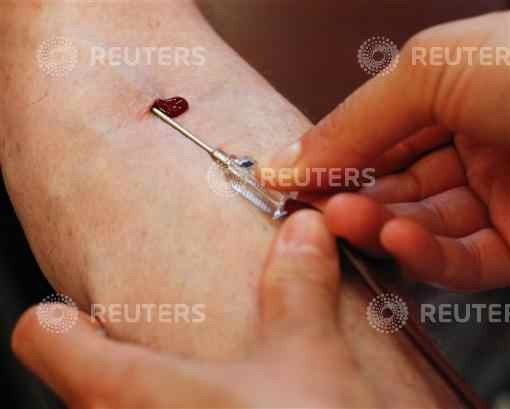Artificial Blood Could Be Used Within Next 10 Years

Patients undergoing transplant operations could be given artificial blood created from stem cells in the next ten years, researchers say.
The scientists behind the research, which could provide the blood on a huge scale, say that clinical trials could be tested within two or three years.
Edinburgh and Bristol researchers produced thousands of millions of red blood cells from adult stem cells. Blood from these cells would be infection free and be able to help save thousands of lives and used in war zones and at the scene of car crashes, regardless of blood group.
Scientists are also developing a "stopgap" bloodlike substance which could be injected into the body until an actual blood transfusion can happen.
Prof Marc Turner said: "I think it will probably be two or three years before we get to clinical trials and I would think it will be a decade or so before one sees these kinds of artificial red cells or cultured red cells in routine general practice," said Professor Marc Turner.
While it would be an imperfect substitute for real blood and will not be used in all operations, it could revolutionise treatment in ambulances, war zones, disaster areas, experts said.
The team are currently using adult stem cells taken from bone marrow, but cells taken from embryos such as adult stem cells are easier to multiply in large numbers. If scientists can develop this technique, just one embryo could provide all the cells ever needed for Britain's blood supply.
One form of blood substitute, made from haemoglobin from cows, is already licensed for use in patients with severe anaemia in Russia and in South Africa, but was rejected in America by the country's drug authorities as trails showed it increased the risk of stroke and heart disease.
Some 1.6 million Britons give blood each year. In the UK, stocks can fall during holiday periods, with supplies of the highly versatile O-negative type particularly vulnerable.
© Copyright IBTimes 2025. All rights reserved.





















